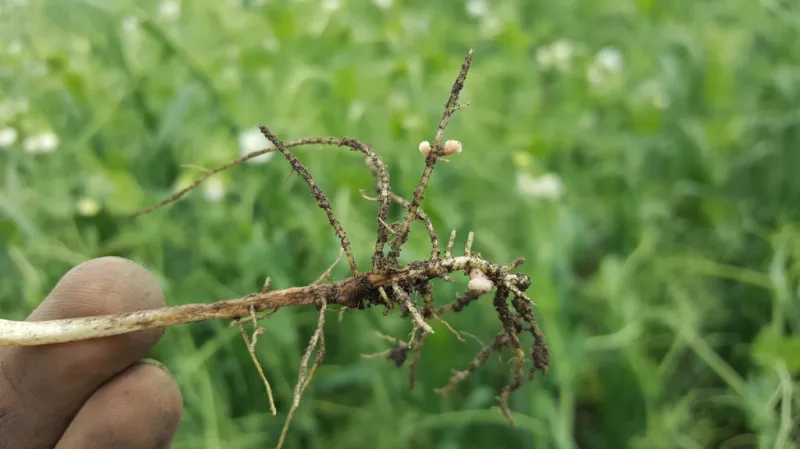Geddes Lab
Unlocking plant-microbe symbiosis for sustainable agriculture

The plant microbiome is crucial for plant health. Members of the plant microbiome are able to provide enhanced nutrient acquisition, protection from diseases, and tolerance to abiotic stresses like drought. Though not yet well understood, plants are able to select and tailor the composition of their microbial communities from the complex microbiome in the soil. Manipulation of the plant microbiome in agriculture represents a new frontier for improving crop growth in an environmentally sustainable manner. In a famous example, bacteria called rhizobia have been applied in agriculture for decades because of their ability to provide nitrogen to legume crops. By leveraging this long-established model system in the context of the plant microbiome, we seek to develop a functional understanding of how plants interact with their microbial communities. Such understandings will pave the way to improving crop yield and resilience by optimizing the rhizobium-legume symbiosis and unlocking the broader microbiome for sustainable agriculture.
